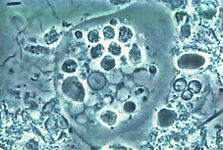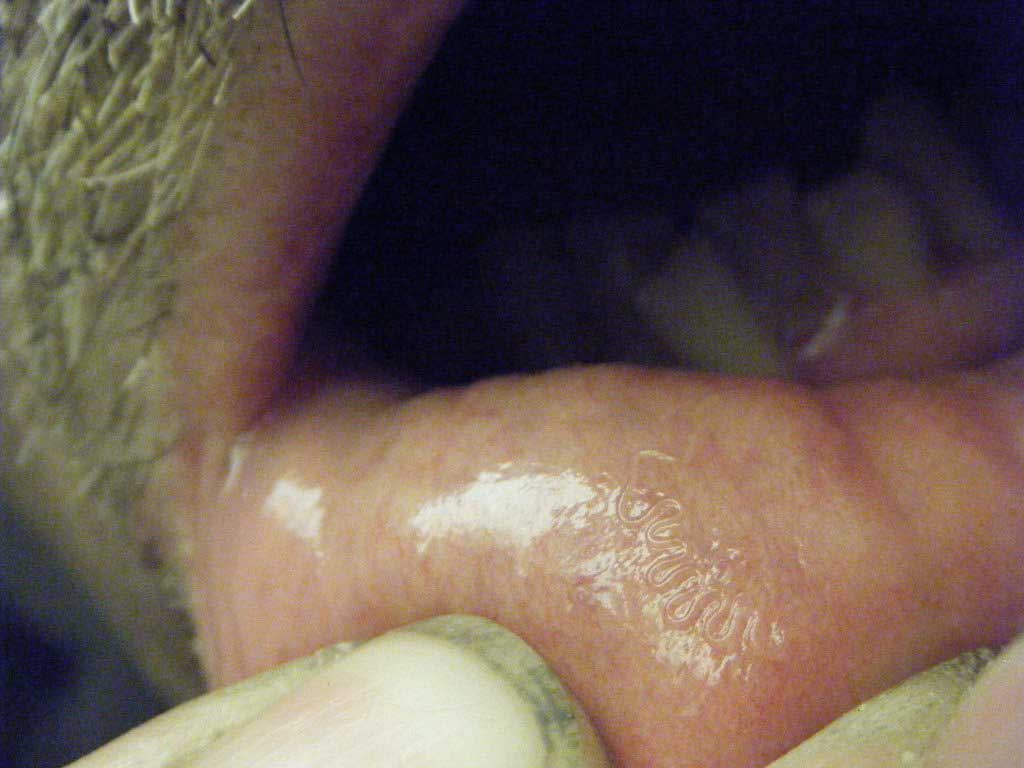Different Types of Lesions in the Mouth – Part 2b – Parasites
A parasite is an organism that lives in another organism, called the host, and often harms it. It depends on its host for survival, without which a parasite cannot live, grow and multiply. Many different parasites can affect humans, and they can pass on diseases such as malaria.
The mouth is an entry point for many parasites that are adapted to the human host. Thankfully most parasites do not specifically target the organs of digestion, including the mouth. There are a few exceptions. One is the Entamoeba gingivalis. The parasite resides inside the gingival pocket biofilm near the base of the teeth, and in periodontal pockets. It is is found in 95% of people with gum disease and rarely in people with healthy gums. Its transmission is direct from one person to another by kissing, or by sharing eating utensils.
The main activity of the amoeba Entamoeba gingivalis in the infected periodontal crevices, besides moving, consists in feeding on the nucleus of white blood cells.The amoeba penetrates into the cell and sucks the nucleus out so it can digest it. The white blood cell is now useless.
Another reason to have healthy gums is to keep these “vampires” out!

Other parasites are types of worms. A type of worm is a nematode. It is parasite as it needs the human host since it has no circulatory or respiratory system. The infections are due to humans acting as accidental hosts for the parasite. Patients may note a lump or inflammatory mass in the mouth. The worm migrates in the submucosa of the oral cavity and can appear as a spiral formation form in buccal mucosa, gums, lips, or palate. Although it’s rare; it’s real, and patients can be easily treated.

Need an Appointment?
If you’d like to book an appointment with the dentist at Seymour Dental then call us in Dulwich Hill, Sydney on (02) 9564 2397 or
contact us
Next week
Different Types of Lesions in the Mouth - Part 3 - Autoimmune and Cancer